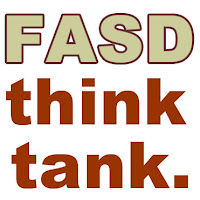 TEXT TO SUCCESS
TEXT TO SUCCESS
with FASD
See It,
Write It,
Remember It.
Guest Blogger
Ann Yurcek, author Tiny Titan Journey of Hope
Ann Yurcek, author Tiny Titan Journey of Hope
Many of our kids can have normal IQ's and can handle more concrete learning information. Often they do well early in their school years on when the information is presented in a CONCRETE easily understood format.
God gave me the gift of understanding that my children use visual memory much better than any other medium of getting things to stick. They can remember vividly what someone was wearing, what they did, and all sorts of information from an event. But cannot remember some of the simplest other things.
Think in the terms of a camera. They can capture the images they see, but they can't see themselves so they never know what they did. (Another blog post for another day). But what that taught me was to help them see just like they now are teaching in autism with picture prompts etc. I used simple notes, cannot be too complex or they shut down and are overwhelmed. Short and sweet, concrete and to the point.
For years I have been teaching teachers, principals and anyone who works with my kids if they want them to remember something they need to TALK LESS and use a simple bullet reflection system to help them see and retain the information into their memory. Talking to my kids the message becomes jumbled and often lost in translation as it processes through their damaged brains.
My house became a series of notes put up as reminders. There were times even though still needed the kids removed them as they didn't want to be treated differently or have their friends see anything that will get them noticed for being a different.
Often kids/adults with FASD have auditory processing disorders. But in our world and society we talk too much. When I talk to my kids with FASD I have to talk simply, with three or four words with a slight pause which allows their brains time to process the information that I give them. Then double check for understanding.
If I wanted my child to bring me or put something away right I would use a post it note reminder. Go get me french fries from the freezer. I had to do something as too many times they got to the freezer and brought in corn instead of peas. or whatever and it ended it in my frustration and their feeling bad that they got it wrong.
I know that my adult kids can remember what they receive via text message, what took me so long to get on the text to remember kick?
Becca and Dee have been texting each other room to room. They were texting in the same room the other day. I wondered why? Becca figured out Dee understood instructions better texted than communicated. It took Becca with her Autism and understanding of not hearing what is being said in a room full of too much noise for her to know what to do to help Dee understand instructions.
I was talking with a friend lately and talking about we talk to much. She has been emailing her daughter with discussions instead of deep conversations and they seemed to make a difference in her understanding and her remembering.
LIGHTBULB moment: With our teens and young adults we need to use their mediums to help them.
I just tried an experiment. I texted Dee up in her room and asked her if she could please make Mac a bottle. I received a reply, I am all the way up here! I texted back that I was writing and I would really appreciate her helping me. Okaaaay.
Normally anything you tell Dee needs many steps going like this.
1. Ask her to do a simple chore.
2. Wait 3-5 minutes to see if it processes and is understood by asking the question again.
3. Now wait 3-5 minutes to see if she responds.
4. Carefully prompt her again if not moving.
5. Double check for understanding.
To make the said bottle would require me to have 15 to20 minutes of intervention. Not because she is being oppositional like so many would think. It was just because it would take that much intervention and complex processing for her to be able to hear it, transition, and get moving.
The bottle arrived in less than 5 minutes.
Want something done, want them to remember, quit talking so much and put it in writing.
TEXT to SUCCESS. But first sign up for UNLIMITED TEXTING.



















